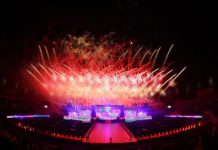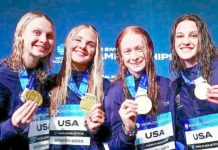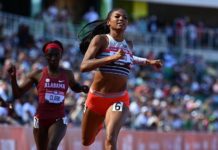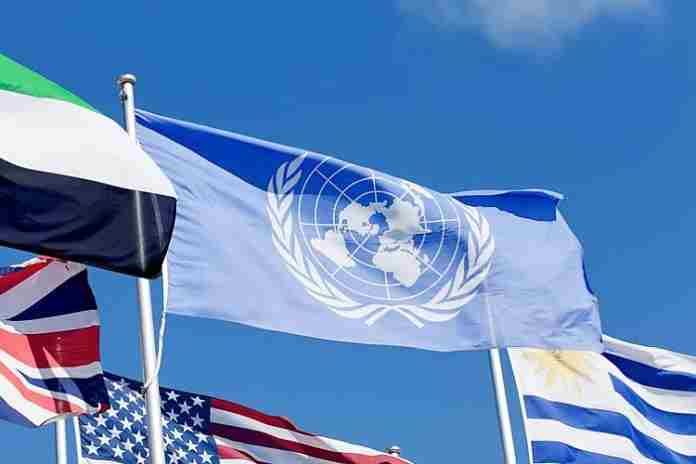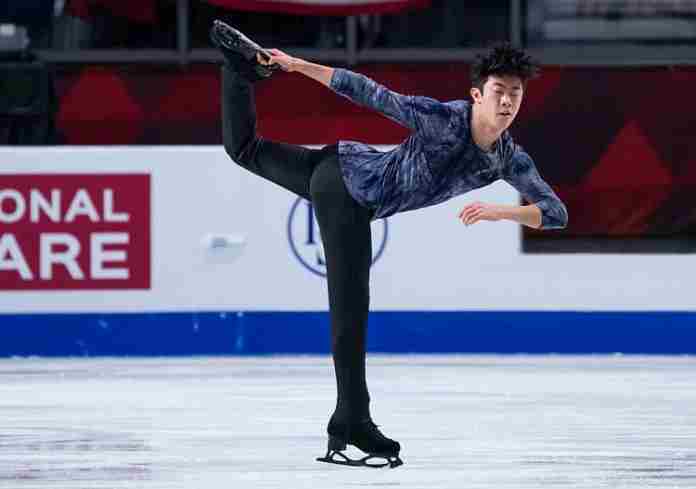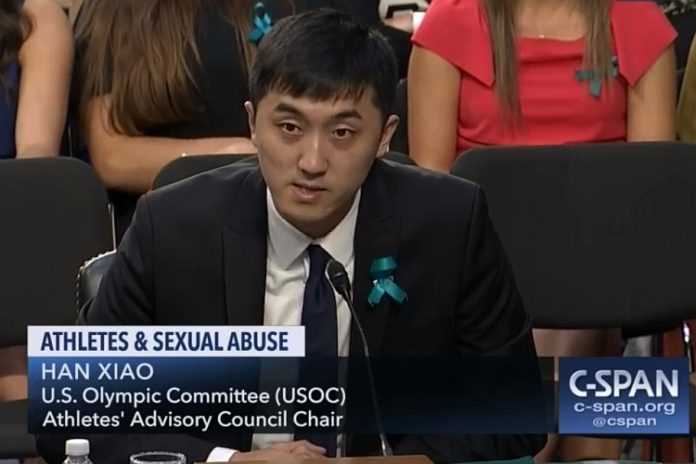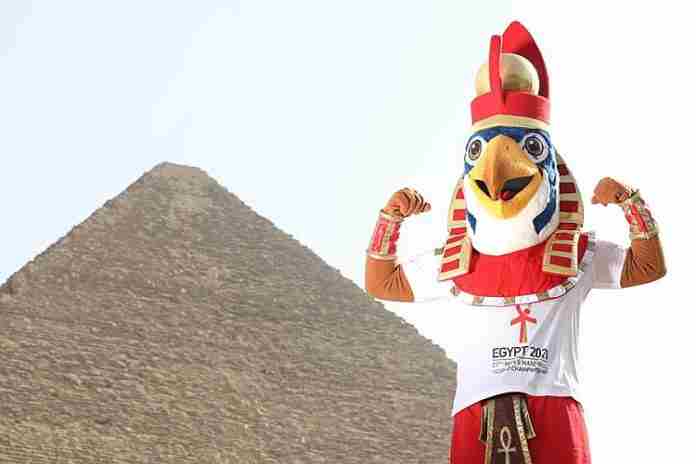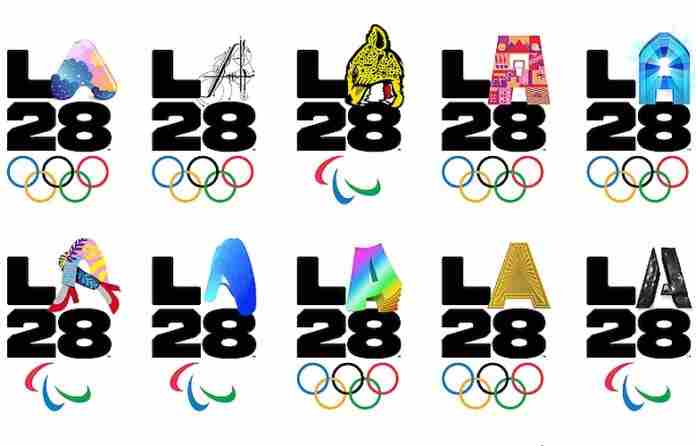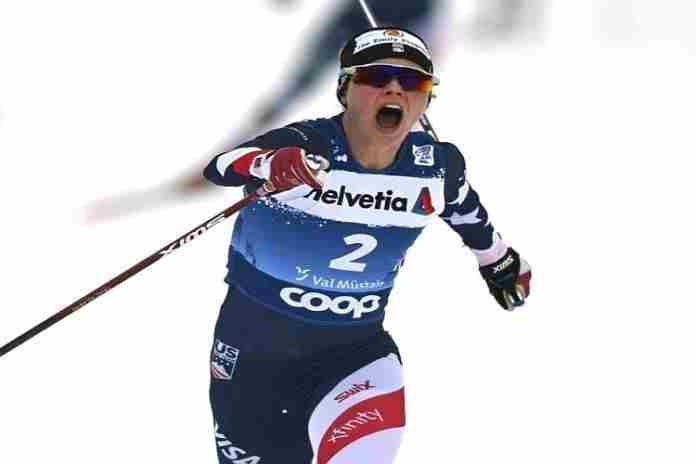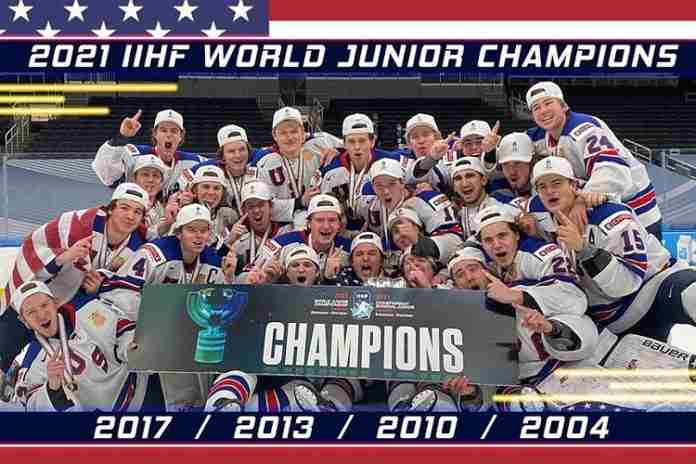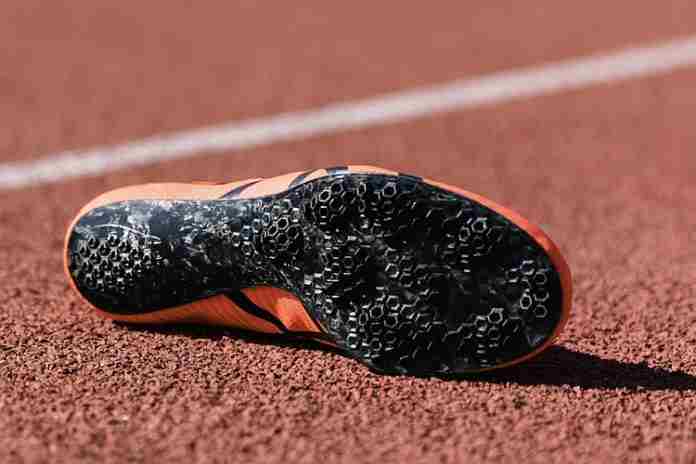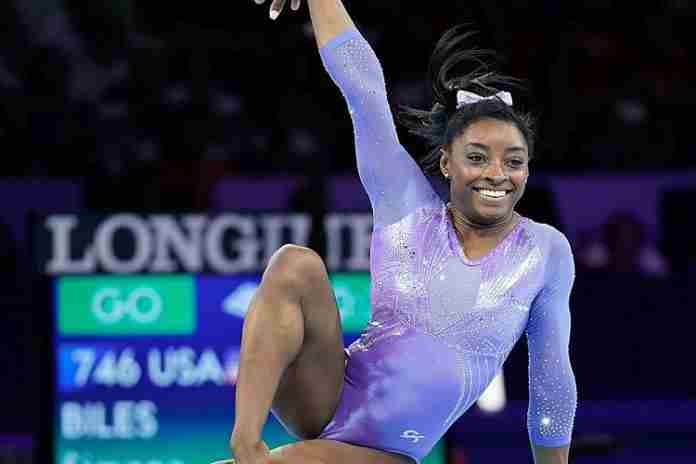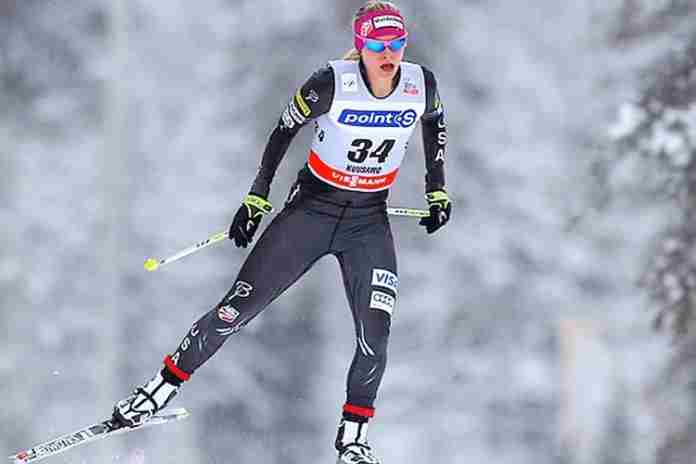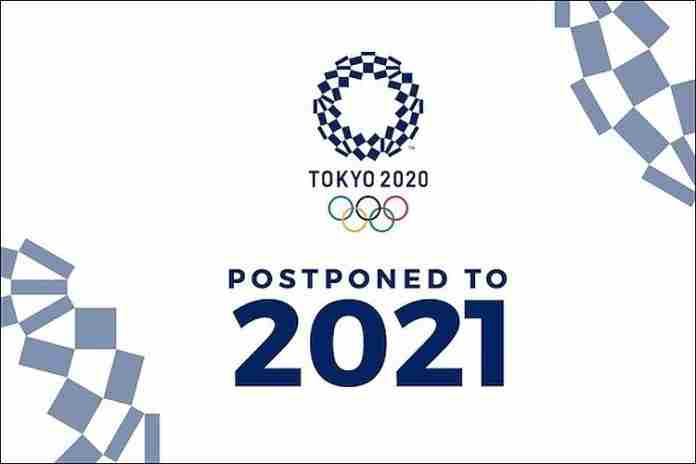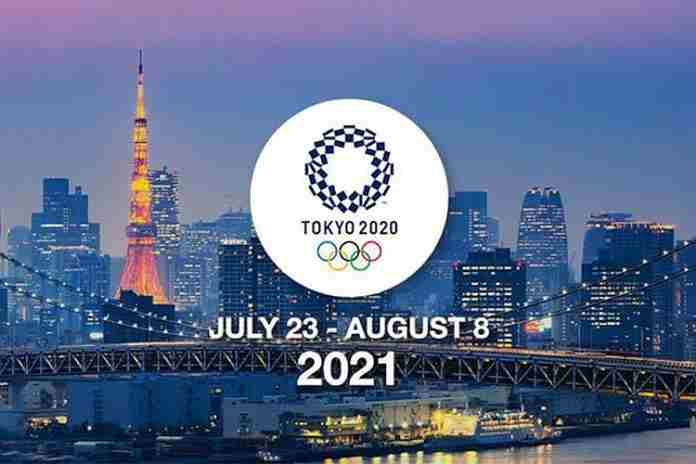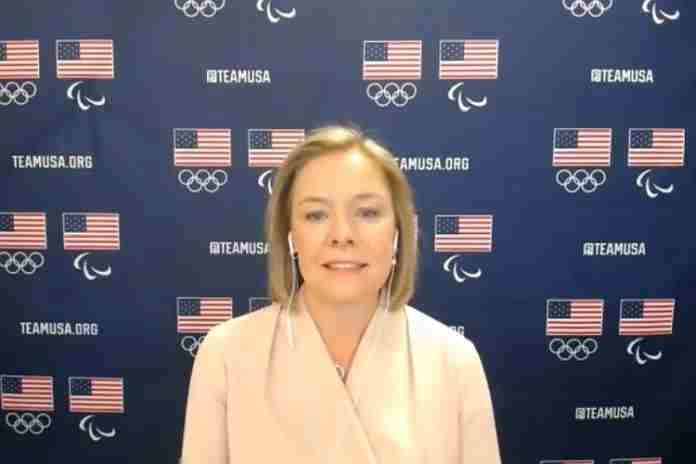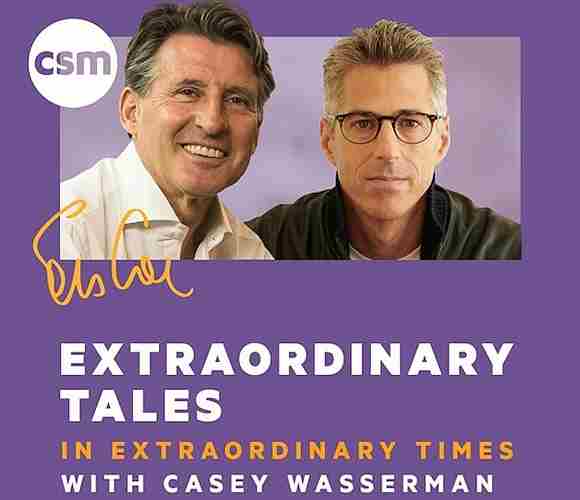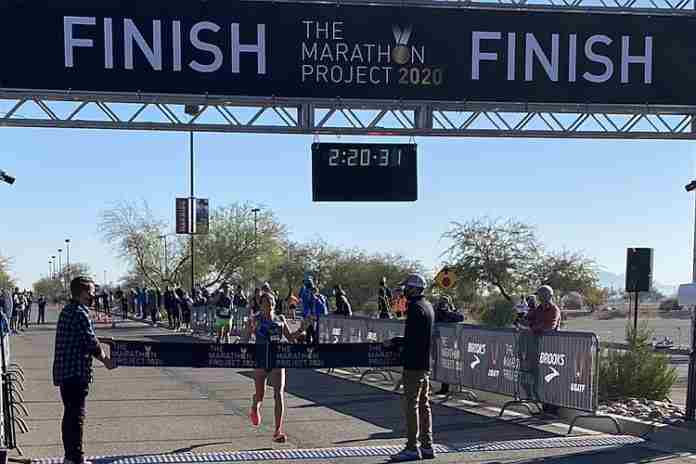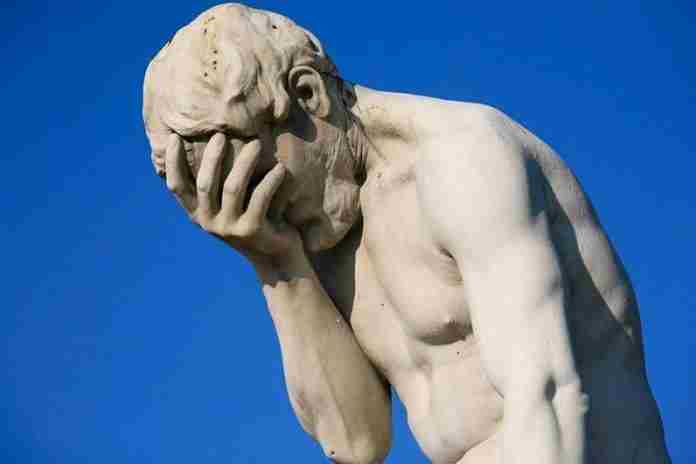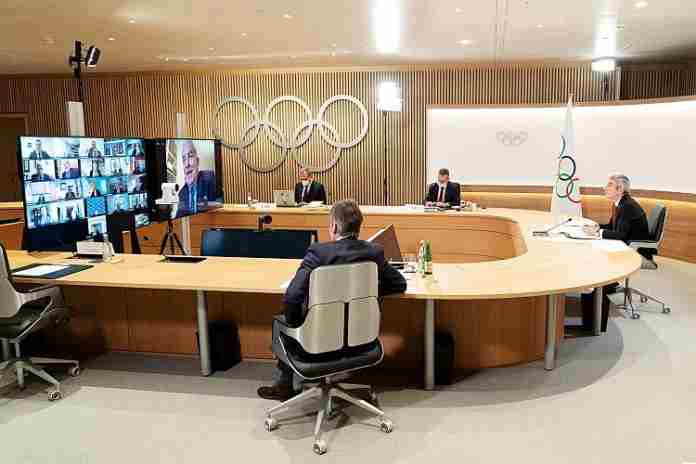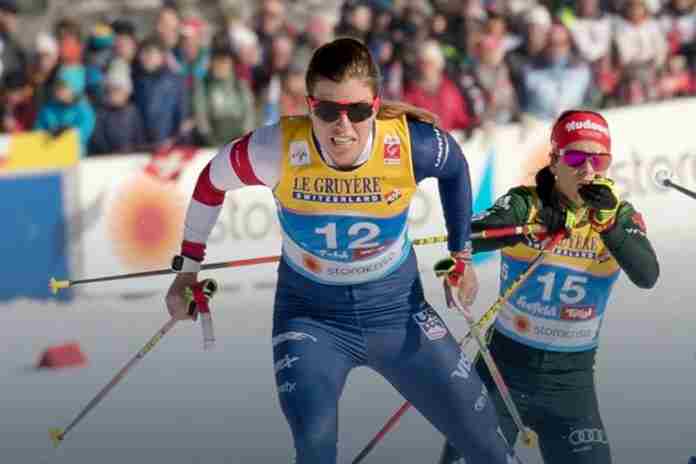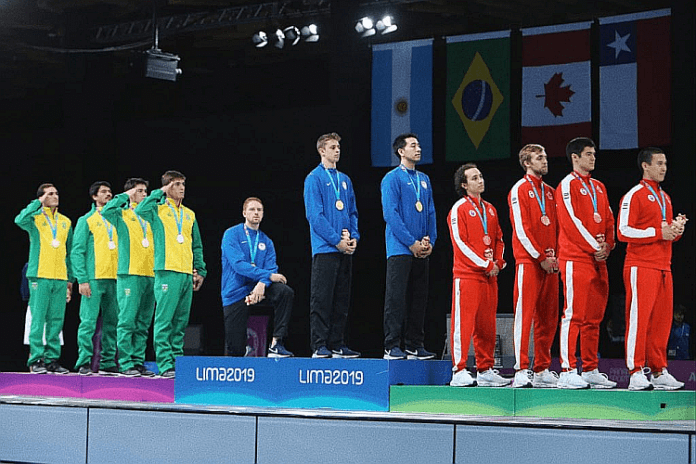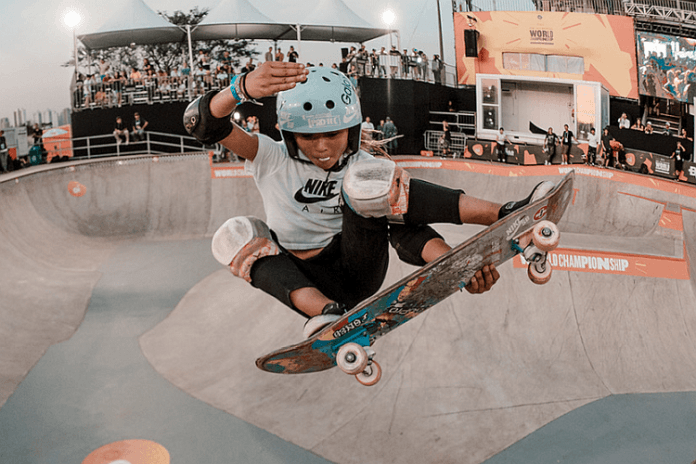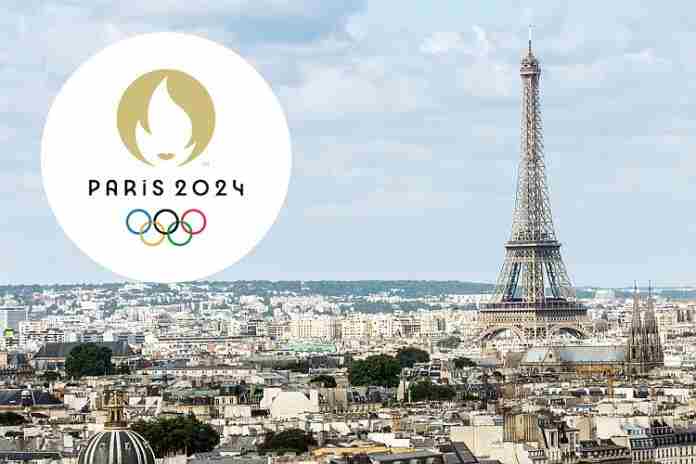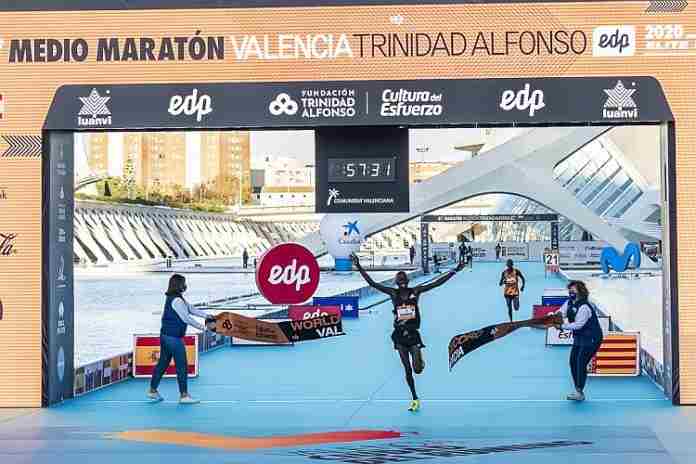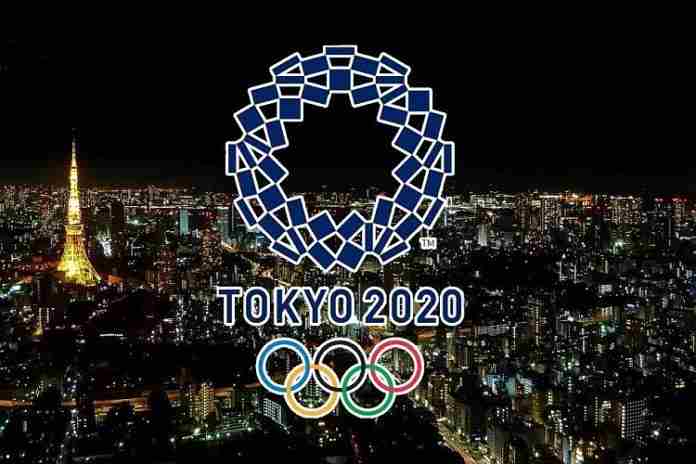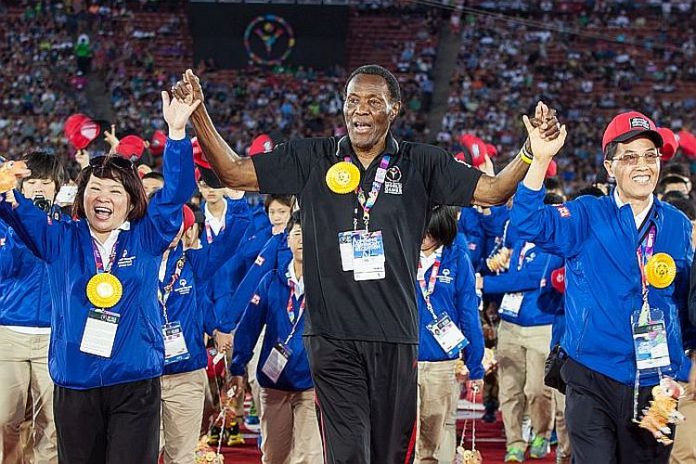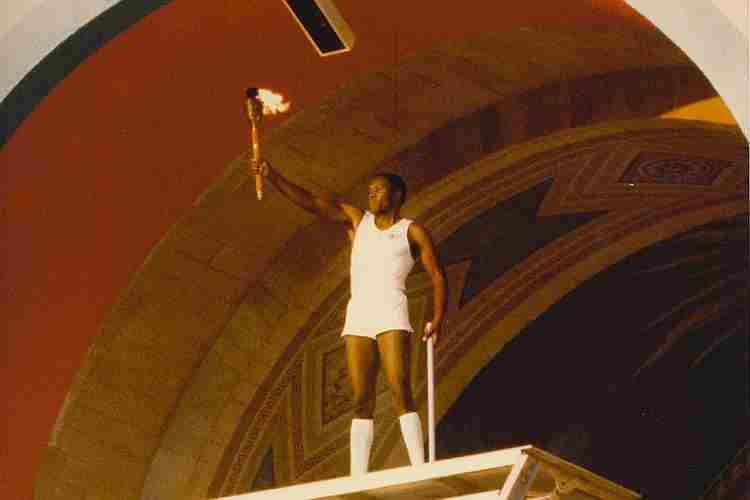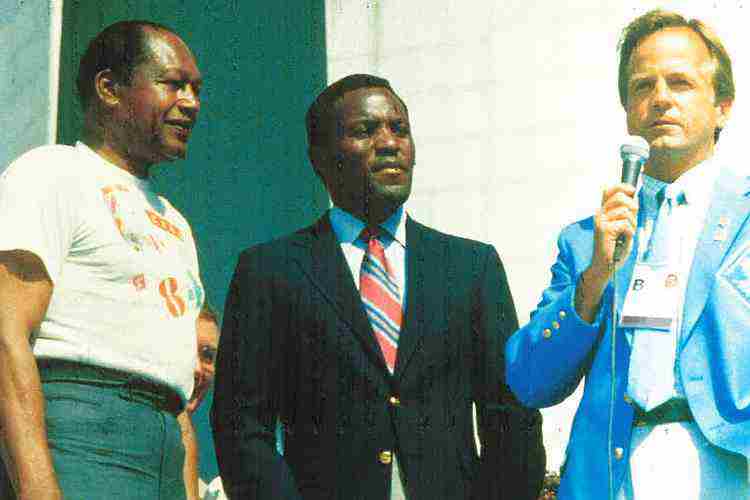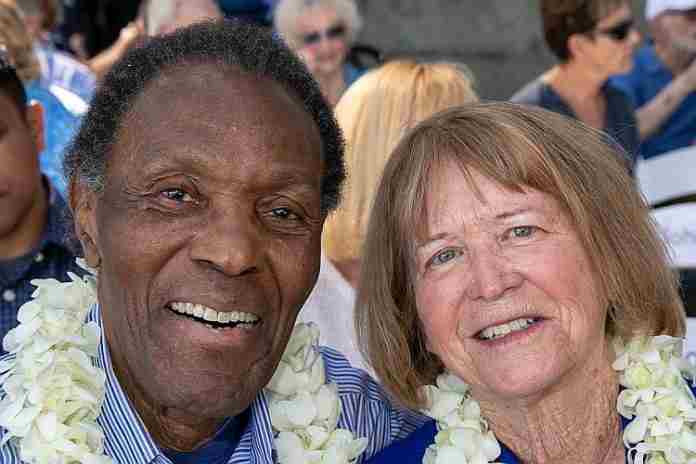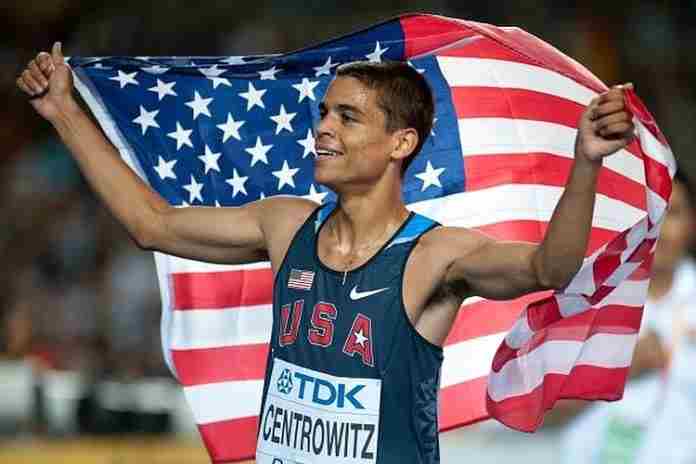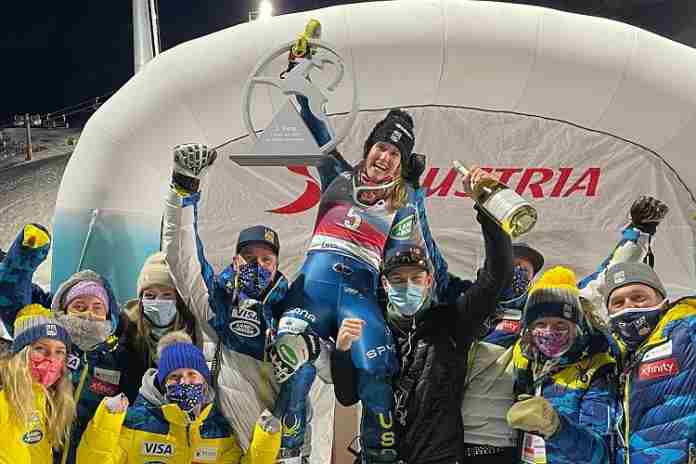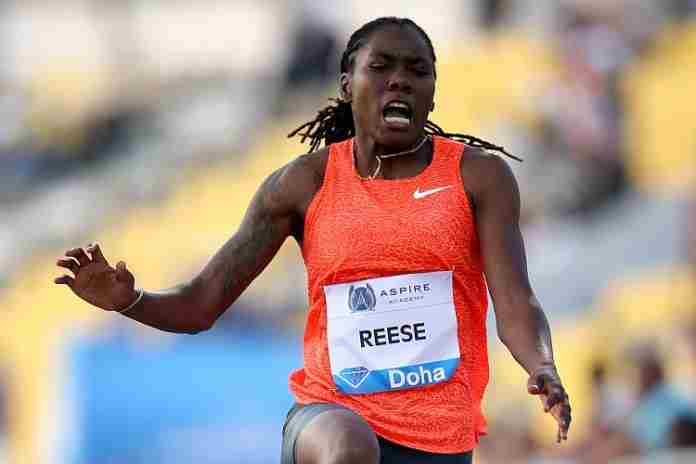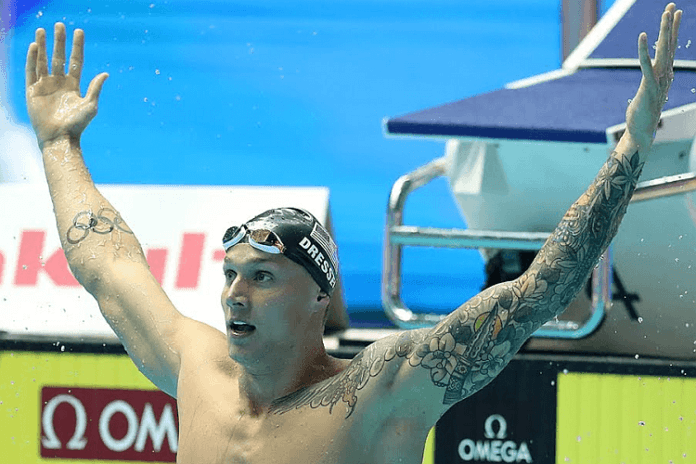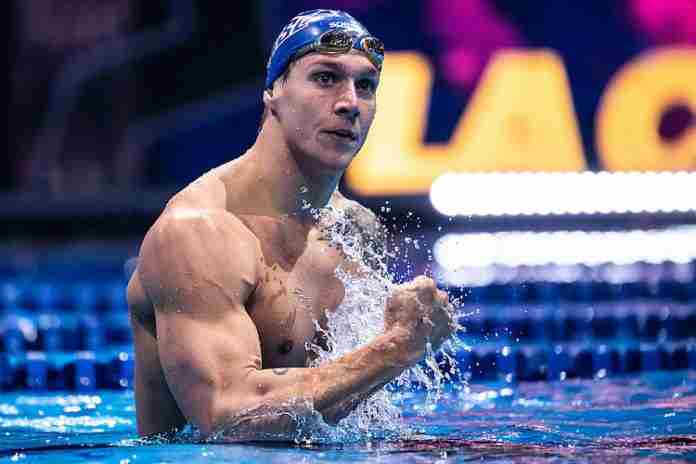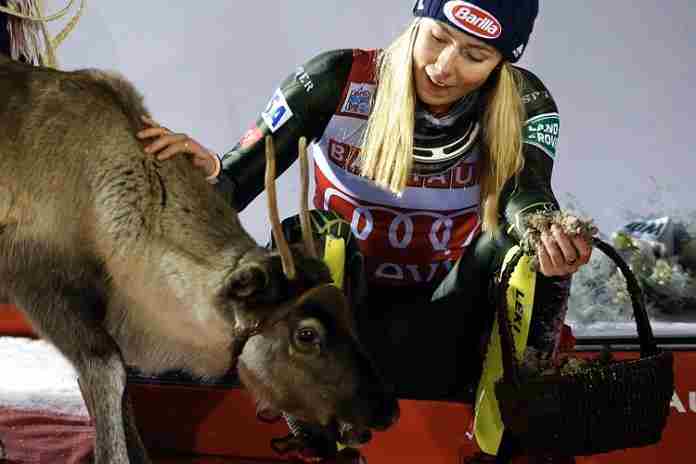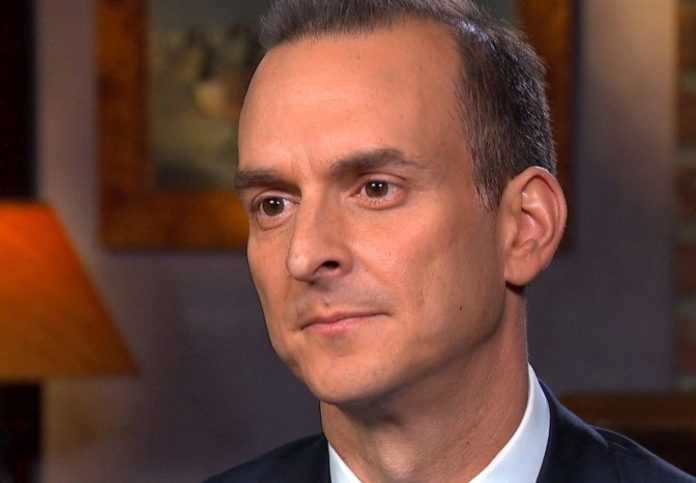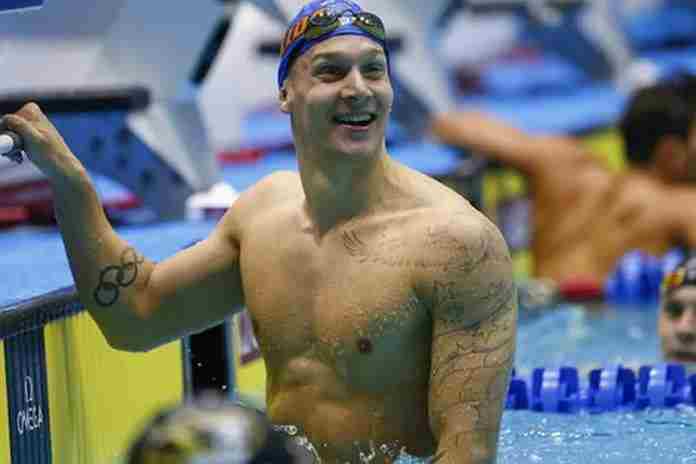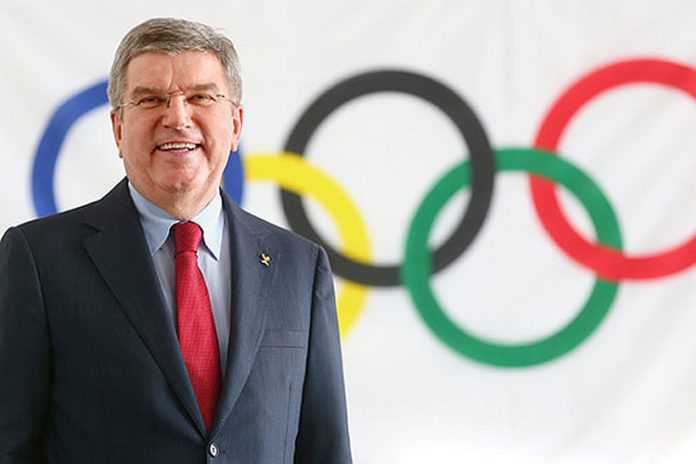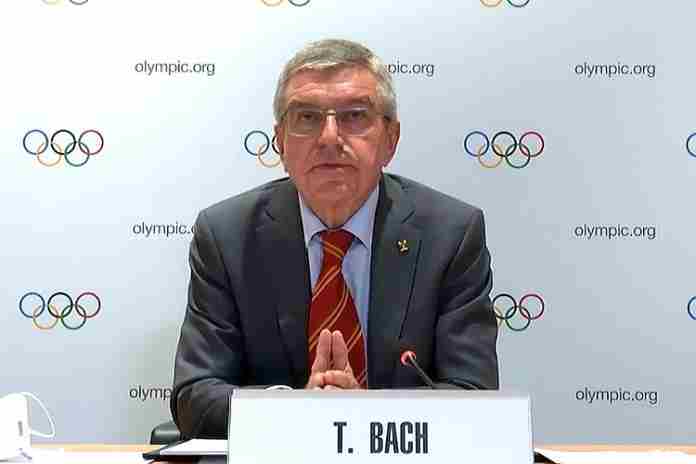(★ Friends: Let’s hope 2021 is a much better year for everyone. Thank you to our 34 donors toward our bill for server and support costs; we’re at 81% of our goal. If you would like to join in, please donate here. Your enthusiasm motivates this site. ★)
Headline results of noteworthy competitions around the world:
International sport has not returned to a full schedule, but at least this week was refreshingly busy, with quite a bit of late-finishing action in the U.S.!
● Alpine Skiing ● After Tuesday’s Slalom win for American star Mikaela Shiffrin in Flachau (AUT), the FIS Alpine World Cup tour for women was supposed to head for Maribor in Slovenia, but was moved to Kranjska Gora instead for two Giant Slalom races.
Italy’s Marta Bassino had won two of the prior three GS races this season, with Shiffrin winning the other and Bassino was all in for this weekend’s races. She immediately took the lead in Saturday’s race with the fastest time on the first run and then was second-fastest on the second by just 0.05 to win easily, 2:11.90-2:12.70 over France’s Tessa Worley and Swiss Michelle Gisin. Shiffrin was fourth on the first run, but only 12th on the second and finished sixth.
On Sunday, Bassino trailed after the first run by 0.30 as Shriffin skied brilliantly and had the lead. But the Italian came back with the fastest second run in the field and won again in 2:18.06, with Gisin moving from third to second overall (2:18.72). Shiffrin faded on the second run, with the 15th-fastest time, and was sixth again, as Meta Hrovat (SLO) ended up third.
The men’s tour was supposed to be in Kitzbuehel (AUT) for Slalom races on the weekend, but these had to be moved to Flachau. Home favorite Manuel Feller won Saturday’s race for his first career World Cup gold, followed by France’s Clement Noel and Marco Schwarz (AUT). Sunday’s race was another first career gold, this time for Norway’s Sebastian Foss-Solevag, with Schwarz second and World Cup overall leader Alexis Pinturault (FRA) third, his fifth medal of the season.
● Athletics ● The first world record of 2021 came in a small meet in Aubiere, France as Hugues Fabrice Zango of Burkina Faso triple-jumped 18.07 m (59-3 1/2), the first ever to surpass 18 m indoors.
He was already the easy winner at 17.70 m (58-1) in the fifth round, then zoomed to 18.07 m for the eighth-best jump in history, moving him to no. 6 on the all-time list. Zango, 27, was the 2019 World Championships bronze medalist and improved on the 17.92 m (58-9 1/2) mark by his coach, Teddy Tamgho (FRA), in 2011.
At the Texas Tech Corky Classic in Lubbock, Texas, 2019 USATF Nationals bronze medalist K.C. Lightfoot set a U.S. collegiate indoor record by clearing 5.94 m (19-5 3/4) on his first try. That’s one centimeter better than the 5.93 m (19-5 1/2) by Chris Nilsen (South Dakota) cleared in 2020 and places Lightfoot, a junior at Baylor, no. 10 on the all-time U.S. list.
● Badminton ● The BWF World Tour finally kicked off in Bangkok this week, at the Super 1000-level Yonex Thailand Open.
Although far from complete, the field still included many of the sport’s stars, and the women’s final was a tantalizing clash between no. 1-ranked Tzu Ying Tai (TPE) and the 2016 Olympic champ, Spain’s Carolina Marin. Now fully recovered from injury, Marin dominated the match, winning in straight sets by 21-9 and 21-16.
The men’s Singles final was a straight-sets win for world no. 4 Viktor Axelsen (DEN) over no. 8 Ka Long Angus Ng (HKG) by 21-14, 21-14.
Yang Lee and Chi-Lin Wang (TPE) won the men’s Doubles over V. Shem Goh and Wee Kiong Tan (MAS) in three sets and Indonesia’s Greysia Polii and Apriyani Rahayu won the women’s Doubles in straight sets over Jongkolphan Kititharakul and Rawinda Prajongjai.
The Mixed Doubles final was a showdown between the top two seeds, with home-standing and top-seeded Thais Dechapol Puavaranukroh and Sapirsee Taerattanachai winning over Indonesia’s Praveen Jordan and Melati Oktavianti, 21-2, 20-22, 21-18.
● Biathlon ● The second week of racing in Oberhof (GER) was another good for Norway, which has dominated the World Cup this season.
The two men’s races were won by the brother Boe, with Johannes Thingnes Boe – the younger – winning the 10 km Sprint by 12.4 seconds over countryman Sturla Holm Laegreid, with Arnd Peiffer (GER) third. It was the third win of the season for J-T Boe.
His older brother, Tarjei Boe, took the 15 km Mass Start event on Sunday with a final loop surge, winning in 37:41.9, just 3.6 second up on Felix Leitner (AUT) and Benjamin Weger (SUI: +7.8). J-T Boe continues as the seasonal leader.
Norway’s Tiril Eckhoff won her third straight World Cup race with a 9.3-second win in the women’s 7.5 km Sprint, even with one shooting penalty. Italian star Dorothea Wierer won the silver, with Lisa Theresa Hauser (AUT) third.
France’s Julia Simon broke through to win the women’s 12.5 km Mass Start race on Sunday for her second career World Cup gold, ahead of Franziska Preuss (GER: +3.9) and Swede Hanna Oberg (+11.7). Norway’s Marte Olsbu Roeiseland continues to lead the seasonal standings.
● Bobsled & Skeleton ● The sixth of eight stops on the 2020-21 World Cup Tour was in St. Moritz (SUI), but no matter the venue, the results are usually the same: Germany sweeps the 2-man, 4-man and 2-women races, with Francesco Friedrich taking both men’s title.
Teaming with Alexander Schuller this time, Friedrich drove the winning 2-man sled for the ninth time in 10 races this season. Their total of 2:11.92 was well ahead – in bobsled terms – of runner-up Johannes Lochner (with Florian Bauer: 2:12.37) and Canadian star Justin Kripps (with Cameron Stones: 2:12.84).
In the 4-man, Friedrich had the fastest time on both runs, and won with a 2:09.56 total, some 29/100ths up on Benjamin Maier (AUT) and Kripps was third again (+0.49), with Lochner fourth (+0.54).
The 2-women racing was won by Germany’s Stephanie Schneider, riding with Leonie Fiebig, in 2:16.54, just 8/100ths ahead of American Elana Meyers Taylor and Sylvia Hoffman (2:16.62), with Melanie Hasler (SUI: 2:16.73) third. It was Schneider’s second win of the season. American Kaillie Humphries, driving with Lauren Gibbs, finished seventh.
The women’s Monobob will make its Olympic debut in Beijing in 2002 and the IBSF has a new World Cup Series running in the event. Three events were scheduled this week in Park City, Utah, with Nicole Vogt (USA: 1:48.55) winning on Friday, ahead of Marina Silva (BRA: 1:49.70) and Riley Compton of the U.S. (1:49.94). Vogt won again on Saturday (1:48.24), with Jamaica’s Carrie Russell (1:49.18) second and Silva (1:49.64). Results from Sunday’s race were not yet available.
At Innsbruck (AUT) on Thursday, Canada’s Melissa Lotholz and Cynthia Appiah went 1-2 at 1:54.26 and 1:54.68, with Karlein Sleper (NED) third in 1:54.86.
In St. Moritz (SUI), U.S. star Humphries – the reigning Olympic champ in the two-women sled, won in her seasonal debut in 2:22.35, barely ahead of German Laura Nolte (2:22.55) and Swiss Martina Fontanive (2:22.64). American Meyers Taylor was fifth in 2:22.78.
In Skeleton, also in St. Moritz, German Alexander Gassner won his first World Cup gold in his 44th race, finishing in 2:16.85, just 0.01 ahead of Latvian superstar Martins Dukurs (2:16.86), with 2018 Olympic champ Sung-Bin Yun (KOR) third in 2:17.32. Germany’s Tina Herrmann won her first race of the season, besting seasonal leader Janine Flock (AUT) by 2:20.68-2:21.00, with Jacqueline Loelling (GER) third (2:21.54).
● Figure Skating ● The U.S. National Championships was held at The Orleans Arena in Las Vegas, Nevada, with familiar faces on the top of the podium.
Superstar Nathan Chen, the four-time defending champion – and still just 21 – led the Short Program scoring by more than six points, 113.92-107.79, over Vincent Zhou, with Jason Brown third (100.92). He then crushed everyone on Sunday, scoring 208.36 points in the Free Skate to win by almost 31 points with a monstrous total of 322.28.
Vincent Zhou (age 20), the 2017 World Junior Champion, finished second for the third time in this event, was second in the Free Skate and second overall, with 291.38. Jason Brown finished in the top three for the fourth time in the last five years, winning the bronze medal at 276.92, with Yaroslav Panoit fourth (266.97).
The women’s title was a second national championship for Bradie Tennell, who won both the Short Program and the Free Skate by wide margins. She scored 79.40 in the Short Program, the best by more than three points and then took the Free Skate with a 153.21 score, almost nine points ahead of Amber Glenn. Tennell’s total of 232.61 easily outscored Glenn (215.33), who jumped from fifth place to second – her best finish ever at the Nationals – thanks to her Free Skate score.
Second after the Short Program, two-time defending champion Alysa Liu – still just 15 – fell to fourth in the Free Skate and ended up fourth overall. Karen Chen was fourth in the Short Program and third in the Free Skate and won the bronze medal.
In Pairs, Alexa Knierim won her fourth U.S. title, but first with new partner Brandon Frazier. But the new combo were the best ever at the Nationals, setting new highs for scores in the Short Program, Free Skate and total: 77.46, 150.64 and 228.10, respectively.
Jessica Calalang and Brian Johnson were second in the Short Program, third in the Free Skate and second overall (for the second straight year) at 205.29. Defending champs Ashley Cain-Gibble and Timothy LeDuc were third, at 200.52.
The 2018 and 2019 Ice Dance national champs, Madison Hubbell and Zachary Donohue, won their third title, scoring 224.56 to edge two-time winners, Madison Chock and Evan Bates (222.93). Hubbell and Donohue came from second after the Rhythm Dance to win the Free Dance to win the title. Kaitlin Hawayak and Jean-Luc Baker scored 212.55 points to win their third straight Nationals bronze medal.
● Freestyle Skiing ● The second Aerials meet of the season was on in Yaroslavi (RUS), with Russia’s reigning World Champion Maxim Burov the favorite off of his season-opening win in Finland in December. He did not disappoint, winning both on Saturday and Sunday, for his seventh and eighth career World Cup titles.
He led a 1-2 Russian finish on both days, ahead of Pavel Krotov, 127.60-120.81, on Saturday, with Noe Roth (SUI) third and American Justin Schoenefeld fourth. On Sunday, Burov scored 125.34 to best Stanislav Nikitin by just 1.36 points (123.98) with Lewis Irving of Canada third (120.36).
The women’s Aerials started as a showcase for Australia’s Laura Peel, the 2015 World Champion, who won her second World Cup gold of the season in a tight duel with American Ashley Caldwell, 96.59-96.23, with Russian Liubov Nikitina third (93.41). On Sunday, it was American Megan Nick on top, winning her third career World Cup and first gold! She scored 89.88 to best Alla Tsuper (BLR: 89.82) and 17-year-old fellow American Kalia Kuhn (87.25), who won her first-ever World Cup medal and earned the U.S. half of all women’s medals on offer!
● Handball ● The 32-team IHF men’s World Championship continues in Egypt, with two-thirds of the first-round group games completed. The nine remaining undefeated teams (2-0) include host Egypt, Sweden, Portugal, France, defending champion Denmark, Germany, Hungary, Argentina and Qatar. The first round will conclude on the 19th.
● Judo ● French and Korea judokas dominated the Doha Masters, the first event of the International Judo Federation’s World Tour for 2021. The opener drew a big field of 398 fighters from 69 countries.
France’s heavyweight superstar, 10-time World Champion Teddy Riner won the +100 kg division, defeating Russian Inal Tasoev in the final, and moving closer to defending his Olympic title in Tokyo.
French women won four classes, with Amandine Buchard at 52 kg, four-time World Champion Clarisse Agbegnenou at 63 kg, Madeleine Malonga at 78 kg and Romane Dicko at +78 kg. Korea took home golds in the three lightest-weight men’s divisions, with Won Jin Kim at 60 kg, Baul An at 66 kg and Changrim An at 73 kg. Japanese fighters reached seven finals, but only Tsukasa Yoshida (women/57 kg) and Yoko Ono (women/70 kg) managed wins.
● Luge ● The racing in Oberhof (GER) had familiar faces on the top of the podium, but included a surprise!
Of course, Germany’s Felix Loch dominated the men’s Singles races, winning in 1:25.380 ahead of Austrians Jonas Mueller (+0.247) and David Gleirscher (+0.443). It was Loch’s eighth win in the nine World Cup races of the season.
But in the women’s Singles, 2014-18 Olympic gold medalist Natalie Geisenberger finally broke through with a win after finishing second in eight straight races this season! Her combined time of 1:22.121 was just better than Madeleine Egle (AUT: 1:22.349) and German Anna Berreiter (1:22.357). Summer Britcher of the U.S. was seventh.
Austrians Thomas Steu and Lorenz Koller were the unexpected stars of the Doubles racing early in the season, winning the first three races, but finally managed a fourth win in Oberhof. Their 1:21.682 total fended off German stars Tobias Wendl and Tobias Arlt (1:21.691) and Latvia’s Andris and Juris Sics (1:21.698).
● Nordic Skiing ● While the cross-country skiers had the weekend off, the Nordic Combined World Cup continued in Val di Fiemme (ITA), with two more wins for seasonal leader (and defending World Cup champ) Jarl Magnus Riiber of Norway.
Jumping off a 104 m hill and in 10 km cross-country races, Riiber won for the fourth and fifth time this season – out of seven total races so far – finishing 8.4 seconds ahead of Finn Ilkka Herola on Saturday (with German Vinzenz Geiger third), and then by just 0.1 seconds over five-time World Cup seasonal winner Eric Frenzel (GER) and Geiger in a mass finish. The top six all finished within one second!
In Ski Jumping, the World Cup tour landed in Zakopane (POL) to jump off the 140 m Wielka Krokiew hill, with 22-year-old Marius Lindvik scoring his third career World Cup victory. His 296.5 total was enough to edge Anze Lanisek (SLO: 294.2) and Norway’s Robert Johansson (292.9). Norway’s Halvor Egner Granerud remains the seasonal leader.
● Snowboard ● Amid many cancellations, the mid-week Parallel Slalom races were held in Bad Gastein (AUT) last Tuesday (12th) with Russia’s Sofia Nadyrshina taking her second straight win this season.
She finished ahead of German Cheyenne Loch in the final, while Selina Joerg (GER) claimed her third medal in four races on the season with a bronze-medal match victory over Julie Zogg (SUI). The men’s race was won by Italy’s Aaron March for his second medal of the season; he defeated Dmitry Loginov (RUS) in the final, while Andreas Prommegger (AUT) out-lasted Igor Sulev (RUS) in the third-place match.
● Speed Skating ● The European Championships were held in Heerenveen (NED) on Saturday and Sunday, the first major event of the season, with Heerenveen being used as a central location for sequestering athletes for multiple meets to come.
To the surprise of no one, Dutch skaters prevailed, with Patrick Roest winning the 1,500 m and 5,000 m on the way to the All-round title with 147.745 points, ahead of teammate Marcel Bosker (149.806) and Norway’s Sverre Lunde Pedersen (149.828), who won the 500 m.
The Sprint title (500 m x2, 1,000 m x2) was another Dutch 1-2, with Thomas Krol winning (137.955, won both 1,000 m races), ahead of Hein Otterspeer (138.645), with German Joel Dufter third (138.770).
In the women’s All-round, Dutch stars Antoinette de Jong and Irene Schouten were 1-2 at 159.303 and 160.056, with de Jong winning the 1,500 m and Schouten taking the 3,000 m. Czech star Martina Sabilkova was third (160.320) and won the 5,000 m.
The women’s Sprint was “only” a 1-3 finish for the Dutch, as Jutta Leerdam won with 149.385 points, winning the second 1,000 m race to clinch the title. Russian Angelina Golikova took the silver (149.855) and won both of the 500 m sprints. Femke Kok (NED) was second in both 500 m races and third in both of the 1,000 m races and finished third overall (149.870).
● Swimming ● It wasn’t a normal edition of the Tyr Pro Series, but the first meet in the series was held in two sections, in San Antonio, Texas and Richmond, Virginia. A large contingent of the U.S. National Team was in San Antonio, but that didn’t mean that best marks weren’t posted in Richmond.
At the top of the list was Emily Escobedo in the 100 m Breaststroke, who timed 1:01.11, just better than Olympic star Lilly King (1:07.14) in San Antonio, and then again in the 200 m Breast. Escobedo won in Richmond in 2:23.46, with King winning in 2:25.83.
In San Antonio, University of Florida star Kieran Smith won three events, taking the 200 m Free, 400 m Free and the 200 m Medley. Zane Grothe was the distance star, winning both the 800 m and 1,500 m Frees, double Olympic champ Ryan Murphy won the 100-200 m Backstrokes, and Nic Fink doubled in the 100-200 m Breast finals.
Beyond King’s two women’s Breaststroke wins, 18-year-old Backstroke superstar Regan Smith won the 100 m Butterfly in addition to the 100 m Back, Ally McHugh compiled an impressive distance double with the 400 m Medley and the 1,500 m Freestyle, with open-water star Haley Anderson second in the latter. Anderson won two other distance swims: the 400 and 800 m Frees.
Multi-event winners in Richmond included Ashley Twichell in the 400-800-1,500 m Frees and 16-year-old Josh Parent in the 400 m Free, 1,500 m Free and 400 m Medley for three wins each. Escobido won the 200 m Medley in addition to her Breaststroke victories. The other two-event winners included Justin Ress in the 100 m Free and 100 m Back, and Catie DeLoof in the 50-100 m Frees.
● Wrestling ● The 47th Henri Deglane Grand Prix in Nice (FRA) featured a bevy of strong teams competing for the first time in 2021, including a significant contingent from the U.S. And the American wrestlers did not disappoint, winning an impressive total of 15 medals over the weekend, all in the Freestyle divisions.
The U.S. won four men’s divisions, with Nick Suriano taking the 57 kg crown over Islam Bazarganov (AZE) by 7-1; Yianni Diakomihalis won at 65 kg in an all-American final over former Worlds 70 kg medalist James Green, 5-0; the 79kg World Champion Kyle Dake took a default win at 74 kg as Georgia’s Daviti Tlashadze was injured and Rio Olympic champ Kyle Snyder won at 97 kg with an impressive 14-3 thrashing of Georgian Givi Matcharashvili.
Reigning World Champions Beka Lomtadze (61 kg) and Geno Petriashvili (125 kg) – both from Georgia – won their divisions.
Three Americans won bronze: Tom Gilman at 57 kg, Zahif Valencia at 86 kg and Nick Gwiazdowski at 125 kg.
The American women were completely dominant, winning four of six divisions; in fact, two of the finals were U.S. vs. U.S. finals. Rio Olympic champ Helen Maroulis showed she is back from concussion issues, winning at 57 kg by scores of 13-0, 10-0, 13-0 and 4-1 in the final against German Laura Mertens.
The all-American finals came at 62 kg, where Kayla Miracle defeated Macey Kilty, 8-2, and at 68 kg, where World Champion Tamyra Mensah-Stock out-pointed Forrest Molinari, 6-1. Sarah Hildebrandt stomped Evin Demirhan (TUR) by 13-2 at 50 kg, but Swede Sofia Mattsson won over World Champion Jacarra Winchester, 8-4, at 53 kg.
Turkey dominated the Greco-Roman divisions, winning six of the 10 classes: 55 kg (Serif Kilic), 60 kg (Kerem Kamal), 63 kg (Abdurahman Altan), 72 kg (Selcuk Can), 77 kg (Fatih Cengiz), and 82 kg (Emrah Cus).
● Coming Attractions ● The U.S. Women’s National Team will make its 2021 debut with a friendly against Colombia on Monday and Friday, with both games at Exploria Stadium in Orlando, Florida. Monday’s game is at 7 p.m. Eastern time, and will be shown on FS1.
You can receive our exclusive TSX Report by e-mail by clicking here. You can also refer a friend by clicking here, and can donate here to keep this site going.
For our 709-event International Sports Calendar for 2021 and beyond, by date and by sport, click here!









